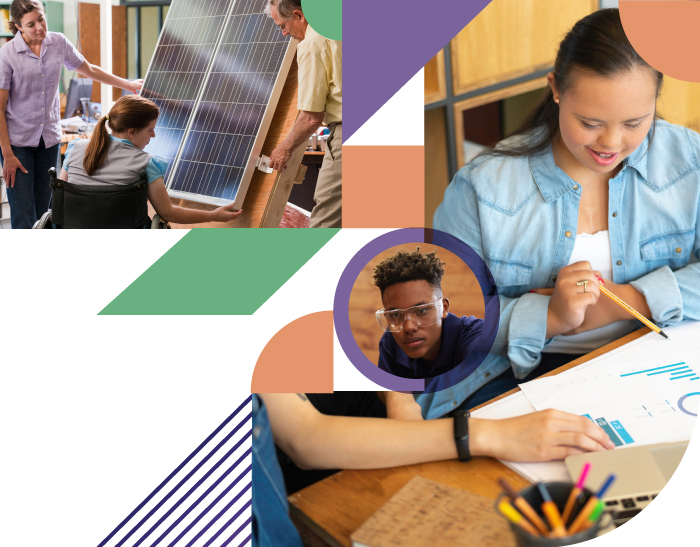Employment
Competitive, integrated employment in a career area of one’s choice is an anticipated outcome for all students with disabilities. During the middle and high school years, students identify their career interests and preferences in particular career areas that should drive the assessment, services, experiences, and supports they receive to help refine their career plans.
Multiple stakeholders can be involved in this process, and students with disabilities can receive a variety of employment-focused services, yet public schools and State Vocational Rehabilitation (VR) agencies are mandated to lead employment and pre-employment activities. The Individuals with Education Act (IDEA) and the Rehabilitation Act Amendments of 1973, as amended by the Workforce Innovation and Opportunity Act (WIOA) require the provision of services, supports and measures to improve employment outcomes for students and youth with disabilities.
Since the 1990 reauthorization of IDEA, several requirements related to measurable postsecondary goal for employment, development of employment objectives, provision of functional vocational assessment, and community experiences. Since WIOA 2014, five specific Pre-Employment Transition Services are provided by all State VR agencies in collaboration with schools. Students and out-of-school youth may also apply for regular VR services, which are more individualized and comprehensive for their specific employment goal. Examples of services include, but are not limited to:
- VR counseling and guidance
- Training and higher education
- Employment supports (job search, job coaching, etc.)
- Supported employment, including customized employment
- On-the-job training
- Restoration services, including job accommodations

What's New
Key Resources
- Competitive Integrated Employment Toolkit
- Quick Guide: Preparing Students for Competitive Integrated Employment (CIE)
- Pre-Employment Transition Services: A Guide for Collaboration Among State Vocational Rehabilitation Agencies and Education Partners
- School-Based Enterprise Toolkit
- Effective Practices in Employment
- Work-based Learning 101 Training Module
Related Topics
Pre-Employment Transition Services
Training to begin exploring jobs and career interests through additional VR services and in collaboration with state and local education agencies to students with disabilities. Explore options on how to make available to all students with disabilities who need those services. More about Pre-Employment Transition Services.Job Exploration Counseling
Guidance on a wide variety of activities to help youth explore career options and opportunities are intended to foster motivation, career research, and informed decision-making. More about Job Exploration Counseling.Job Development
Includes pursuing employment goals through work experiences, customized and supported employment, job development strategies, etc. More on this coming soon.Workplace Readiness Training
Workplace readiness skills may include developing social skills and independent living, such as communication and interpersonal skills, financial literacy, orientation and mobility skills, job-seeking skills, understanding employer expectations for punctuality and performance, as well as other “soft” skills. More about Workplace Readiness Training.Community Engagement and Independent Living
Help youth navigate choices and opportunities to be more independent, consider living arrangements, build social connections, and practice self-advocacy skills to build self-determination. More about community supports and independent living.

